I am trying to work out how I would be able to implement this autokey cipher and think that I have most of it worked out. The cipher is supposed to use a subkey style system using the characters positions in the alphabet.
Currently I am stuck on how to handle a few symbols " ;:,." when they are input as part of the encryption or decryption string and and not sure how to approach it as I am new to the language. Any guidance or direction would be wonderful. Posed the code and an example of how the cipher should work below.
#include <iostream>
#include <string>
#include <assert.h>
using namespace std;
//Declares
char autokeyE(int, int);
char autokeyD(char);
char numToLetter(int);
int letterToNum(char);
int main()
{
//Declares
string inputText, finalText;
int firstAlpha = 0;
int key = 0;
int option = 0;
//First Values
do
{
cout << "What operation would you like to do? Press '1' for Encrypt and '2' for Decrypt." << endl ;
cin >> option;
if (option == 1)
{
cout << "Please input your plain text to encrypt." << endl ;
cin >> inputText;
cout << "Please input your key to encrypt with." << endl;
cin >> key;
string finalText = "";
firstAlpha = letterToNum(inputText[0]);
finalText = numToLetter((firstAlpha + key) %26);
//inputText[0] = finalText[0];
for (int x = 1; x < inputText.length(); x++)
{
finalText += autokeyE(letterToNum(inputText[x-1]), letterToNum(inputText[x]));
}
cout << finalText << endl;
}
if (option == 2)
{
cout << "Please input your encrypted text to decrypt." << endl ;
cin >> inputText;
string finalText = "";
firstAlpha = letterToNum(inputText[0]);
finalText = numToLetter((firstAlpha + key) %26);
for (int x = 1; x < inputText.length(); x++)
{
//cout << inputText[x]; Testing output
finalText += autokeyD(inputText[x]);
}
cout << finalText << endl;
}
}
while (!inputText.length() == 0);
}
char autokeyE(int c, int n)
{
cout << "Keystream: " << n << " | Current Subkey: " << c << endl;
int result = 0;
//c = toupper(c);
result = ((c + n) +26 )%26;
cout << "C as a numtoletter: " << numToLetter(result) << " Result: " << result << endl;
return numToLetter(result);
return c;
}
char autokeyD(char c)
{
//Decrypting Shift -1
if (isalpha(c))
{
c = toupper(c);
c = (((c - 65) - 1) % 26) + 65;
}
return c;
}
char numToLetter(int n)
{
assert(n >= 1 && n <= 32);
return "ABCDEFGHIJKLMNOPQRSTUVWXYZ ;:,."[n];
}
int letterToNum(char n)
{
if (isalpha(n))
{
n = toupper(n);
return(int) n - 65;
}
else
{
cout << "REUTRNING A NON ALPHA CHARACTER AS: " << n << endl;
return(int) n -30;
}
}
